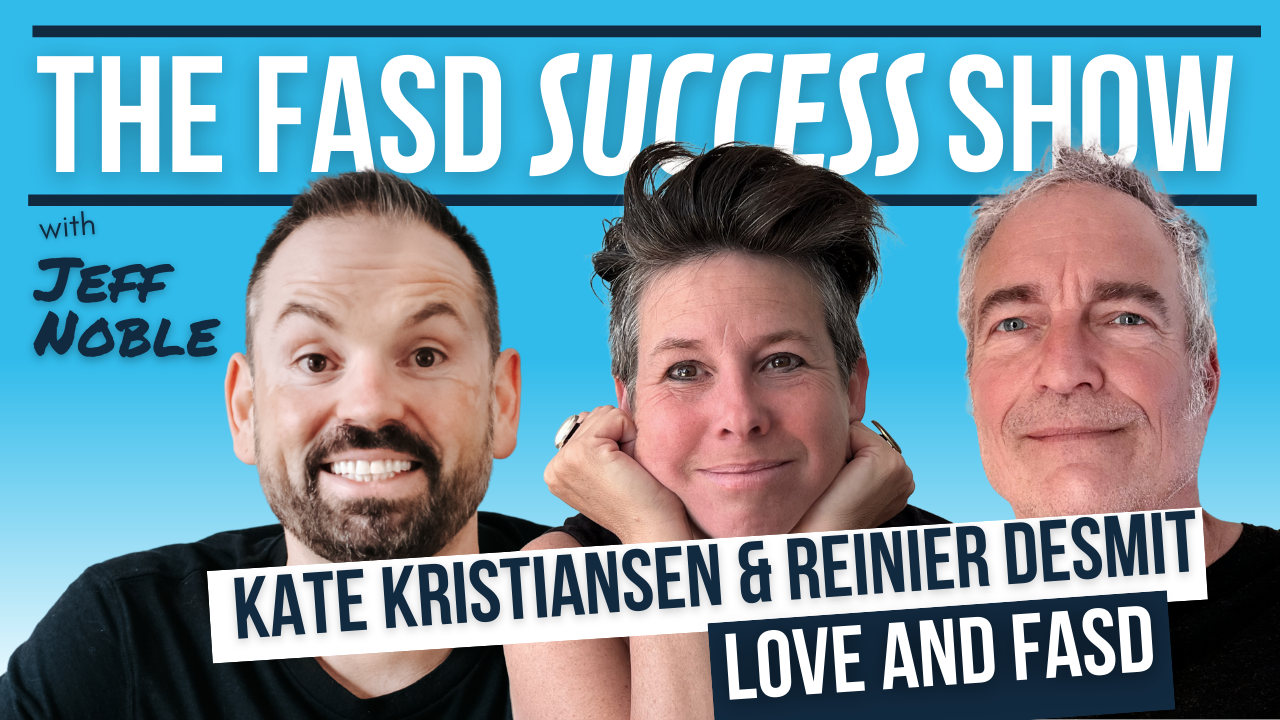Relationships and Resilience: Reinier & Kate on Love and FASD
Sep 15, 2025
Love, Resilience, and the Long Game: Kate & Reinier on FASD and Relationships
When you think about milestones in life — buying a home, finding love, building a family — you probably imagine them happening in your twenties or thirties. But what if they happened later? What if they came at 56 or even 65?
Would they still matter?
That’s the question at the heart of this week’s FASD Success Show episode with my guests, Kate Kristiansen and Reinier Desmit. Their story is living proof that late wins still count, and that love and stability can be built no matter what stage of life you’re in.
Reinier’s Story: Diagnosis in Midlife
Reinier was officially diagnosed with FASD at the age of 56. For decades, he knew something didn’t quite add up — the scattered strengths, the struggles with transitions, the labels that didn’t fit. The diagnosis finally gave him clarity.
It wasn’t doom. It was language. It was validation. It was a framework that helped him understand why his brain worked the way it did.
Today, Reinier is a visual creator, counselor, advocate, and mentor. But the most important role he’s embraced is being a partner — because alongside him is Kate.
Kate’s Perspective: Partner, Not Caregiver
Kate is a communications professional with years of experience in leadership and advocacy. But in this story, her most powerful role is as Reinier’s partner.
She said something in the interview that hit me like a ton of bricks:
“I don’t want to be his caregiver. I want to be his partner.”
That’s a line so many caregivers dream of being able to say. It doesn’t mean the challenges disappear. It means they’ve found a way to reframe, to work together, to build a life based on interdependence instead of dependence.
Strategies That Work
Their story isn’t a fairy tale. It’s real life. It’s arguments, adjustments, and figuring it out day by day. But it’s also a roadmap for caregivers and partners who want to know: how do you make it work?
Here are a few of the strategies they shared:
-
Conflict doesn’t mean collapse. When things get heated, they step away — but always with the reassurance: “I’ll be back.” That safety of return builds trust.
-
Transitions feel like motion sickness. For Reinier, sameness and structure are what keep him steady. The couple leans on routines and clear expectations to reduce overwhelm.
-
Wins at any age are still wins. Buying their first home at 65 wasn’t “too late.” It was right on time for them. And it matters just as much as if it had happened decades earlier.
Why This Matters for Caregivers
For caregivers listening to this story, there’s a powerful takeaway: hope is not time-limited.
Maybe your child is struggling in school. Maybe you’re in the thick of teenage years with rages, lying, or endless IEP meetings. Maybe you’re lying awake wondering what happens when you’re gone.
Kate and Reinier’s story shows us this: progress looks different, takes longer, but it still happens. The long game is still worth playing.
The Bigger Picture
This conversation isn’t just about love. It’s about resilience. It’s about shifting from seeing a diagnosis as doom to seeing it as a door — one that opens to new possibilities, no matter how late in life they arrive.
It’s also about us as a community remembering that milestones don’t have to match the calendar. Success can come at 8, 18, 28 or 65. And when it does, it deserves to be celebrated.
Resources & Links
-
Join our free caregiver community: facebook.com/groups/fasdforever
-
Explore all podcast episodes: fasdsuccess.com/podcast
-
Watch full interviews on YouTube: FASD Success Channel
-
Learn more about FASD and access training/resources: fasdsuccess.com

